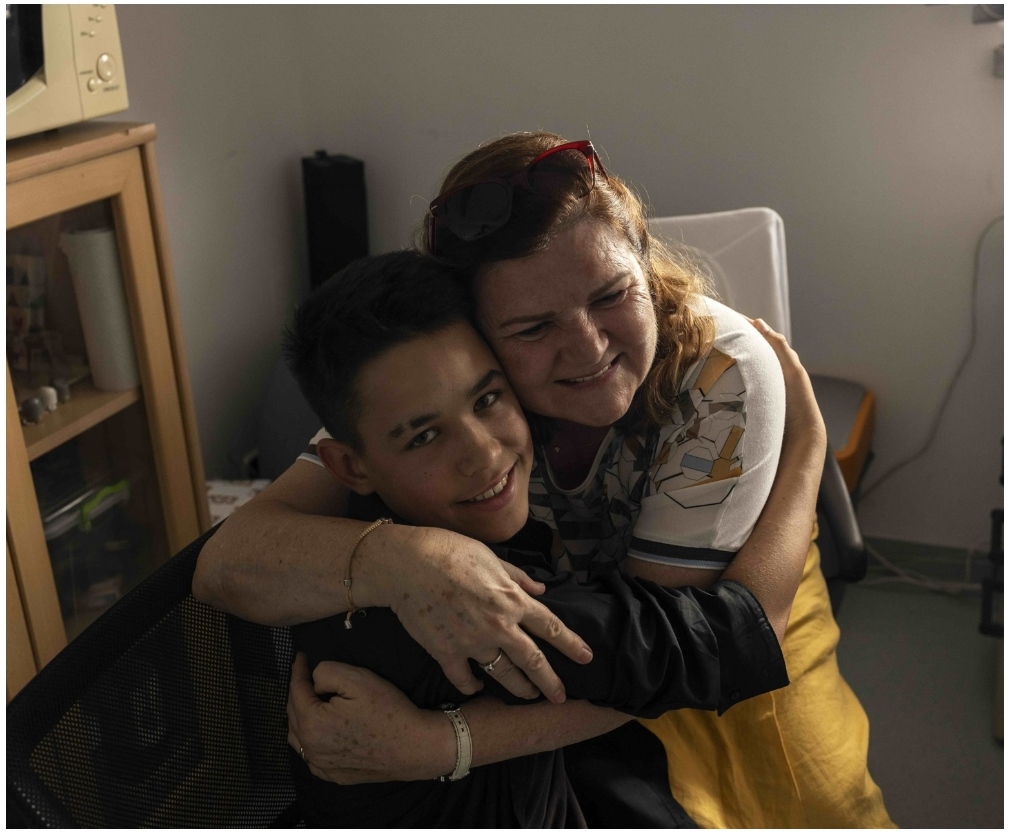WHO Warns Loneliness is a Global Public Health Crisis: 1 in 6 People Affected, Over 100 Deaths Every Hour.
Geneva:
The World Health Organization (WHO) has declared loneliness a global public health crisis, revealing in a new landmark report that 1 in 6 people worldwide suffer from loneliness, with devastating consequences for mental and physical health. The condition is linked to over 871,000 deaths annually—equating to more than 100 deaths every hour, a toll higher than many well-known diseases.
Released by the WHO Commission on Social Connection, the report highlights loneliness and social isolation as “a defining challenge of our time,” calling for urgent, coordinated global action to strengthen social bonds, improve health outcomes, and build more connected societies.
“In this Report, we pull back the curtain on loneliness and isolation as a defining challenge of our time,” said Dr. Vivek Murthy, Co-chair of the Commission and former Surgeon General of the United States. “Our Commission lays out a roadmap for how we can build more connected lives and underscores the profound impact this can have on health, educational, and economic outcomes.”
What Is Loneliness and Why It Matters
WHO defines social connection as the ways people relate to and interact with others. Loneliness is described as the distressing emotional experience that occurs when there is a gap between the social relationships people want and what they actually have. Social isolation is the measurable lack of sufficient social relationships.
While everyone may experience loneliness at some point in their lives, WHO warns that chronic loneliness can be as harmful as smoking 15 cigarettes a day and contributes to serious health risks including:
- Increased risk of heart disease, stroke, diabetes, and early death
- Higher rates of depression, anxiety, and suicidal thoughts
- Greater likelihood of poor academic performance and employment instability
“Apart from the toll it takes on individuals, families, and communities, left unaddressed, loneliness and social isolation will continue to cost society billions in terms of health care, education, and employment,” said Dr. Tedros Adhanom Ghebreyesus, WHO Director-General. “This report shines a light on the scale and impact of loneliness and isolation.”
A Widespread Issue Affecting Youth, the Elderly, and Marginalized Groups
The data paints a stark picture:
- 17–21% of youth aged 13–29 report feeling lonely, with teenagers especially vulnerable.
- 24% of people in low-income countries feel lonely—more than twice the rate in high-income countries (11%).
- Up to 1 in 3 older adults and 1 in 4 adolescents experience social isolation.
- Vulnerable groups—such as people with disabilities, migrants, LGBTQ+ individuals, and ethnic minorities—face additional barriers to connection due to discrimination or marginalization.
Even in the digital age, the paradox of technology is evident. Despite being more “connected” than ever, many people report feeling more isolated.
“As technology reshapes our lives, we must ensure it strengthens—not weakens—human connection,” said Chido Mpemba, Co-chair of the Commission and Advisor to the African Union Chairperson. “Our report shows that social connection must be integrated into all policies—from digital access to health, education, and employment.”
The Economic and Social Costs of Disconnection
The report emphasizes the far-reaching societal impacts of loneliness and isolation:
- Teenagers who experience loneliness are 22% more likely to receive lower grades or qualifications.
- Adults who are lonely may earn less and struggle to stay employed.
- At a community level, lack of social connection undermines social trust, public safety, and disaster resilience.
- The economic toll includes billions in lost productivity, increased health care costs, and lower educational outcomes.
A Roadmap for Action: 5 Global Priorities
To address this crisis, the WHO Commission outlines a global roadmap with five key pillars:
- Policy – Integrate social connection into health, education, labor, and digital development policies.
- Research – Invest in data and innovation to better understand and address loneliness.
- Interventions – Support proven programs to foster connection at national, community, and personal levels.
- Measurement – Develop tools like a Global Social Connection Index to track progress and inform strategy.
- Public Engagement – Shift cultural norms to prioritize connection through awareness and social movements.
The report also urges governments to invest in social infrastructure—such as parks, libraries, community centers, and inclusive digital platforms—and to combat stigma around loneliness through education and public campaigns.
What Individuals Can Do
The WHO also emphasized the role individuals can play. “Simple actions,” the report says, “can have a big impact.” These include:
- Calling or visiting a friend
- Volunteering or joining a local club
- Greeting a neighbor
- Putting away devices to engage fully in conversation
For those facing more serious loneliness, it is essential to seek support and mental health services.
A Public Health Priority
The WHO is calling on all Member States, civil society, tech companies, and individuals to recognize social connection as a global public health priority.
“Most people know what it feels like to be lonely,” the report concludes. “Now is the time to turn that understanding into action.



